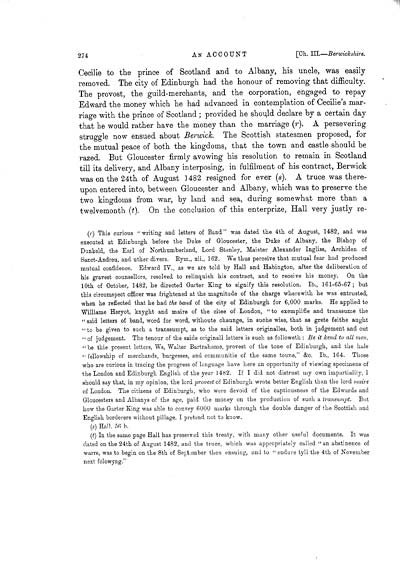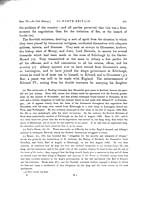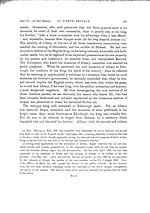Volume 3
(286) Page 274
Download files
Individual page:
Thumbnail gallery: Grid view | List view

274 Cecilie to the prince of Scotland and to Albany, his uncle, was easily removed. The city of Edinburgh had the honour of removing that difficulty. The provost, the guild-merchants, and the corporation, engaged to repay Edward the money which he had advanced in contemplation of Cecilie's mar- riage with the prince of Scotland ; provided he should declare by a certain day that he would rather have the money than the marriage (r). A persevering struggle now ensued about Berwick The Scottish statesmen proposed, for the mutual peace of both the kingdoms, that the town and castle should be razed. But Gloucester firmly avowing his resolution to remain in Scotland till its delivery, and Albany interposing, in fulfilment of his contract, Berwick was on the 24th of August 1482 resigned for ever (s). A truce was there- upon entered into, between Gloucester and Albany, which was to preserve the two kingdoms from war, by land and sea, during somewhat more than a twelvemonth (t). On the conclusion of this enterprize, Hall very justly re- (r) This curious "writing and letters of Band" was dated the 4th of August, 1482, and was executed at Edinburgh before the Duke of Gloucester, the Duke of Albany, the Bishop of Dunkeld, the Earl of Northumberland, Lord Stanley, Maister Alexander Ingliss, Archiden of Sanet-Andreu, and uther divers. Rym., xii., 162. We thus perceive that mutual fear had produced mutual confidence. Edward IV., as we are told by Hall and Habington, after the deliberation of his gravest counsellors, resolved to relinquish his contract, and to receive his money. On the 10th of October, 1482, he directed Garter King to signify this resolution. Ib., 161-65-67; but this circumspect officer was frightened at the magnitude of the charge wherewith he was entrusted, when he reflected that he had the band of the city of Edinburgh for 6,000 marks. He applied to Williame Heryot, knyght and maire of the citee of London, "to exemplifie and transsume the " said letters of band, word for word, withoute chaunge, in suche wise, that as grete feithe aught "to be given to such a transsumpt, as to the said letters originalles, both in judgement and out " of judgement. The tenour of the saide originall letters is such as followeth : Be it kend to all men, " be thie present letters, Ws, Walter Bartrahame, provest of the tone of Edinburgh, and the hale " fellowship of merchands, burgesses, and communitie of the same toune," &c. Ib., 164. Those who are curious in tracing the progress of language have here an opportunity of viewing specimens of the London and Edinburgh English of the year 1482. It' I did not distrust my own impartiality, 1 should say that, in my opinion, the lord provest of Edinburgh wrote better English than the lord maire of London. The citizens of Edinburgh, who were devoid of the captiousness of the Edwards and Gloucester and Albanys of the age, paid the money on the production of such a transumpt. But how the Garter King was able to convey 6000 marks through the double danger of the Scottish and English borderers without pillage, I pretend not to know. (s) Hall. 56 b. (t) In the same page Hall has preserved this treaty, with many other useful documents. It was dated on the 24th of August 1482, and the truce, which was appropriately called "an abstinence of wane, was to begin on the 8th of September then ensuing, and to " endure tyll the 4th of November next folowyng."
Set display mode to:
![]() Universal Viewer |
Universal Viewer | ![]() Mirador |
Large image | Transcription
Mirador |
Large image | Transcription
Images and transcriptions on this page, including medium image downloads, may be used under the Creative Commons Attribution 4.0 International Licence unless otherwise stated. ![]()
| Caledonia, or, An account, historical and topographic of North Britain from the most ancient to the present times > Volume 3 > (286) Page 274 |
|---|
| Permanent URL | https://digital.nls.uk/74528646 |
|---|---|
| Description | Vol. III. |
|---|---|
| Attribution and copyright: |
|

